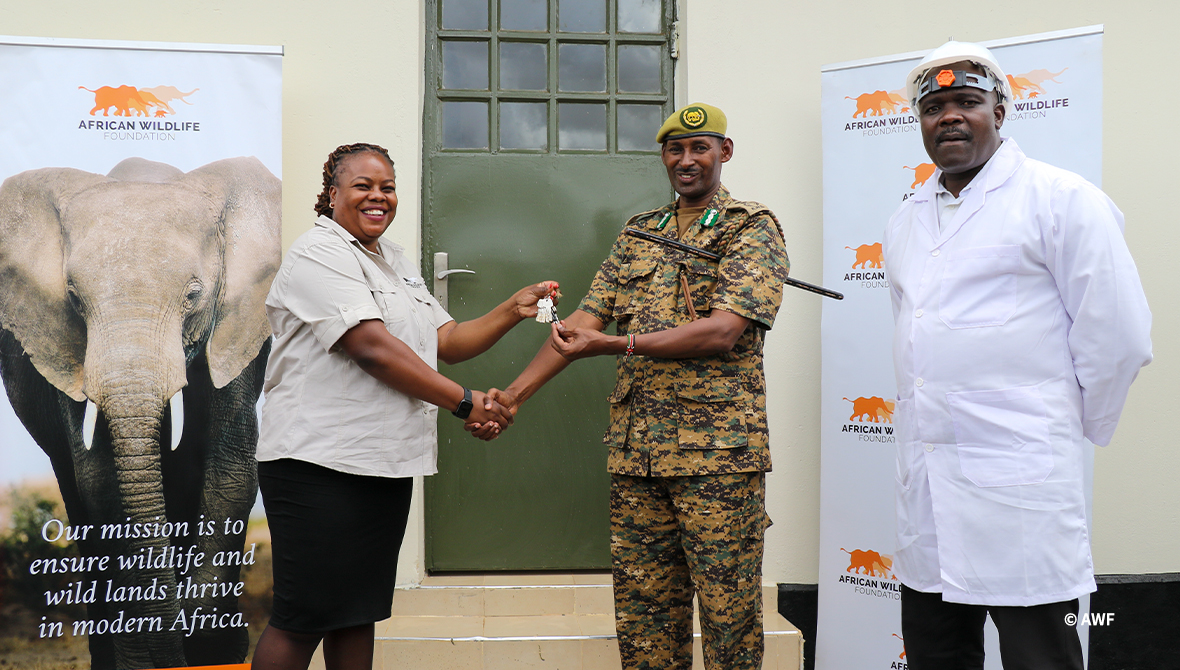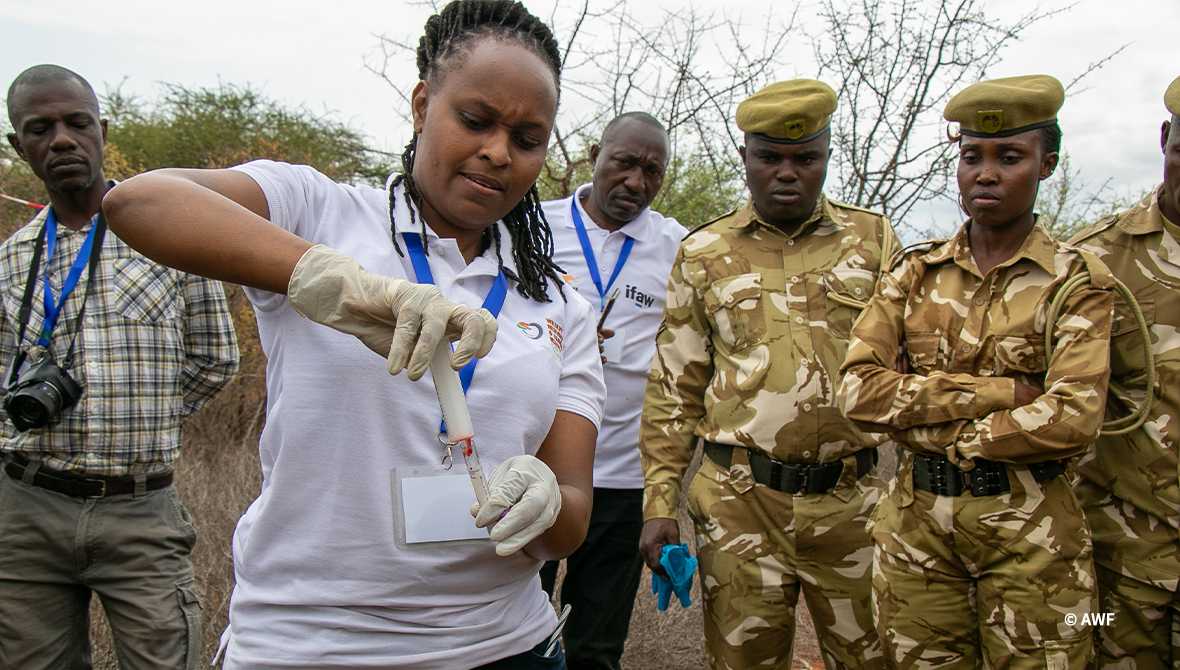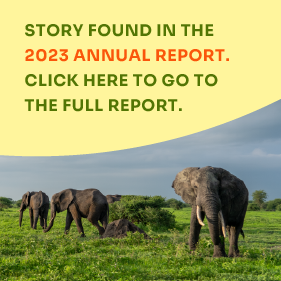Combating Wildlife Crime Requires Vigilance

Didi Wamukoya (left) is the director of AWF’s Counter Wildlife Trafficking program, which unveiled two evidence rooms for the Kenya Wildlife Service in March 2023.
The landscape of wildlife crimes is shifting, presenting a host of challenges that demand a recalibration of conservation strategies. While poaching of some species has declined, illegal online trafficking, which first became an issue during the Covid-19 pandemic, is on the rise. The online trade influences what wildlife products are in demand and how criminals move their product, with a shift towards digital technologies and new cargo routes. Law enforcement has been challenged to keep up.
In FY23, AWF’s Counter Wildlife Trafficking team tackled the challenge by implementing comprehensive training programs for rangers and law enforcement officers in specialized detection techniques and handling of evidence, including digital and DNA forensic evidence. AWF provided law enforcement agencies with training to investigate online wildlife trade, track digital transactions, and handle electronic evidence. The result was a more adept and tech-savvy law enforcement community.

Training on the proper handling of DNA evidence aids in enforcing wildlife crimes.
One example of success? The Kenya Wildlife Service’s DNA Forensic Lab now boasts a 98% success rate in doing analysis of DNA samples submitted by rangers.
AWF also led judiciary tours to wildlife areas—an opportunity for judiciary staff to meet park wardens and wildlife authorities—and court monitoring programs supported by the United States Department of State Bureau of International Narcotics & Law Enforcement Affairs (INL). Both programs facilitated a deeper understanding of the intricacies of wildlife crime cases. Judicial officers, after participating in these initiatives, demonstrated increased understanding and commitment to delivering meaningful penalties, contributing to the deterrence of wildlife crimes.
“In some countries, like Ethiopia, wildlife was not a priority for law enforcement agencies at all. And now it's a very important issue for them. They are requesting AWF support to establish a dog unit and asking for a database for illegal wildlife traffickers. They want tools in order to help them deal with wildlife crimes, deal with trafficking, and improve the way they enforce their laws. That is a good thing,” said Didi Wamukoya, Director of AWF’s Counter Wildlife Trafficking Program.
Another noteworthy accomplishment in FY23 was the construction of evidence rooms in Kenya through support by INL. These evidence rooms, designed and handed over to authorities by AWF, have become benchmarks for the standardization of evidence management. Their significance was further highlighted when key stakeholders, including judiciary members, recognized them as essential to maintaining the integrity of wildlife crime cases.
One challenge seen in FY23 is that dog units at some airports and ports have been so successful in deterring traffickers from using those airports and ports that traffickers have switched to road networks, which require more resources. “Law enforcement is constant,” said Didi. “If in our countries we say, there's little or no crime, let us remove the police—the crime will return. Seeing an officer walking in a street will prevent criminals from committing a crime. This is true of wildlife trafficking as well. Deterrence is a pressure we always have to maintain. We have to be vigilant.”
